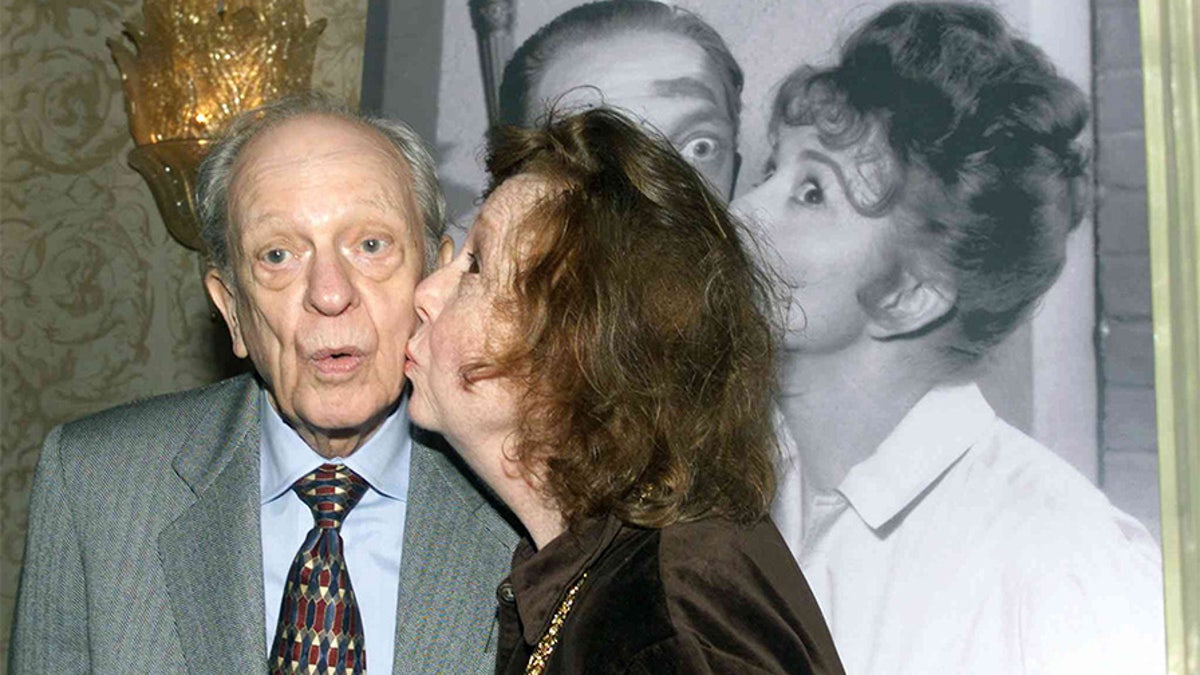Behind the Laughter: Don Knotts’ Daughter Reveals Heartbreaking Truth in Candid Memoir
In a shocking revelation that shatters the nostalgic image of one of television’s most beloved stars, Karen Knotts, the daughter of legendary actor Don Knotts, has bravely opened up about the emotional turmoil that haunted her father throughout his life. Now 71, Karen’s poignant memoir, “Tide: Up in Knots,” delves into the struggles that lay beneath the surface of her father’s comedic genius, offering a raw and honest portrayal of a man who, despite bringing joy to millions, battled deep-seated insecurities and loneliness.

Don Knotts, best known for his iconic role as the bumbling Deputy Barney Fife on “The Andy Griffith Show,” was a household name whose high-pitched voice and endearing antics won him five Emmy Awards and a cherished place in American pop culture. However, as Karen reveals, the laughter that defined his career often masked a profound inner struggle. Raised during the Great Depression, Don faced a tumultuous childhood marked by the loss of two siblings, a father who battled schizophrenia and alcoholism, and a mother who remained emotionally distant. These early traumas cast a long shadow over his life, leaving him with crippling self-doubt that persisted even as he basked in the glow of fame.
In her candid interviews, Karen shares heart-wrenching anecdotes that highlight the dichotomy of her father’s existence. Despite his comedic success, Don was plagued by anxiety and a relentless fear that his audience would one day stop finding him funny. After long days of filming, he would return home utterly drained, collapsing under the weight of the pressure to always be “on.” Karen poignantly recalls her father’s struggles with isolation, revealing that his fame often made it difficult for him to form genuine connections. “He had very few close friends,” she reflects, noting that the persona of Barney Fife overshadowed the real man behind the character.
Perhaps the most touching part of Karen’s narrative focuses on Don’s final years. As he quietly battled macular degeneration and lung cancer, he remained determined not to show weakness to his fans. Karen was by his side during his last days in 2006, and she remembers how, even in his frail state, he found solace in laughter. “Even while dying, he still managed to smile when I cracked a joke,” she recalls, a testament to his enduring spirit and commitment to bringing joy to others.

Karen’s revelations are not laced with resentment; rather, they serve to honor her father’s legacy. She emphasizes that while Don Knotts was a comedic icon, he was also a man who endured profound pain and trauma. “He gave so much of himself,” she writes, “and behind that gift was a man who carried enormous pain.” By sharing her father’s story, Karen seeks to humanize the man behind the laughter, reminding us all that even the funniest people often bear the heaviest burdens.
As fans continue to celebrate Don Knotts’s timeless performances, Karen’s words resonate as a powerful reminder that the price of laughter can be steep. In a world where humor often serves as a shield against suffering, her candid reflections invite us to appreciate not just the joy he brought, but the complex humanity that lay beneath. With her courageous account, Karen Knotts ensures that her father’s legacy is remembered not just for the laughter he inspired, but for the profound depth of his journey—a journey that deserves to be honored with understanding and compassion.






